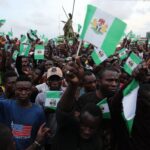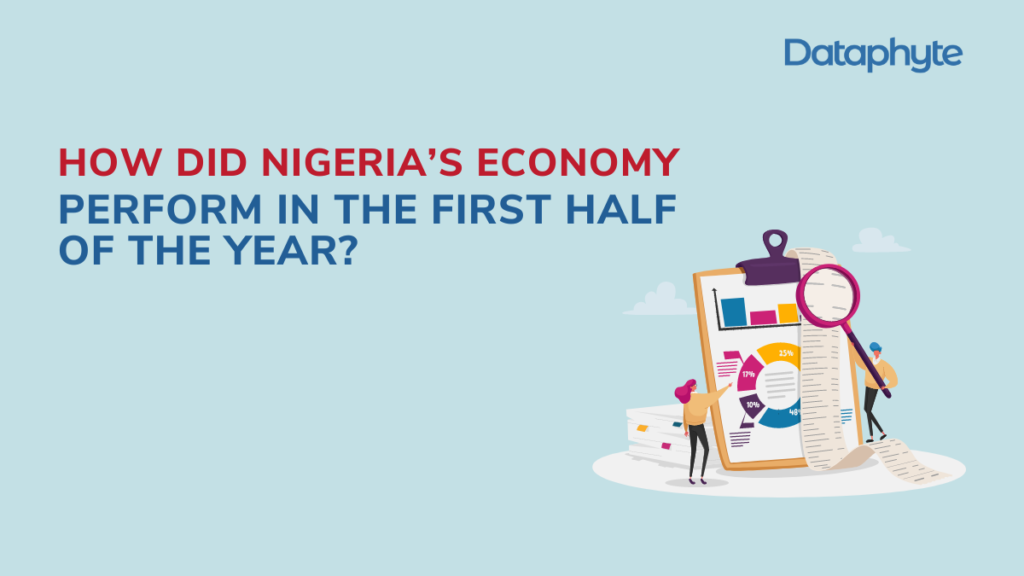By Christopher Okpoko
The World Bank projected global growth to slow in 2023 to 2.1 percent from 3.1 percent last year. According to the Bank, tight global financial conditions and subdued external demand is expected to weigh on growth across emerging market and developing economies. For Sub-Saharan Africa (SSA) economic growth which slowed to 3.6 percent in 2022, from 4.1 percent in 2021 is projected to further slow down to 3.1percent in 2023. The persistent sluggishness of the global economy, declining yet high inflation rates, and challenging global and domestic financial conditions amid high levels of debt explain the downgrade. The possibility of more widespread bank turmoil and tighter monetary policy could result in even weaker global growth and lead to financial dislocations in the most vulnerable emerging market and developing economies (EMDEs). Therefore, comprehensive policy action is needed to foster macroeconomic and financial stability. Among many EMDEs, and especially in low-income countries, bolstering fiscal sustainability will require generating higher revenues, making spending more efficient, and improving debt management practices.
In Nigeria the macroeconomic performance in the first half of this year fell short of expectation and some of the major economic indicators showed that the economy was inhibited by many structural issues, such as inadequate infrastructure, tariff and non-tariff barriers to trade, obstacles to investment, lack of confidence in currency valuation, high debt profile and limited foreign exchange capacity.
Output and Prices
The International Monetary Fund (IMF) forecasted a growth of 3.2 percent for Nigeria’s economy in 2023. However, according to the National Bureau of Statistics (NBS), Gross Domestic Product (GDP) grew by 2.31 percent (year-on-year) in real terms in the first quarter of 2023. This growth rate declined from 3.52 percent in the fourth quarter of 2022. The reduction in growth was attributed to the adverse effects of the cash crunch experienced during the quarter. The GDP for the second quarter of 2023 has not be published as at the time of this report, but it is unlikely to grow dramatically compared to the first quarter because of the same uncertainties associated with the elections as well as cash crunch which continued in the second quarter.
Beyond the second quarter, the inflation rate is unlikely to slow down due to the impact of the removal of fuel subsidy and devaluation of the naira due to the single foreign exchange regime.
Energy Sector
The Nigeria Electricity Regulatory Commission (NERC), report showed that power distribution averaged 4,094.09 megawatt (MW), despite available generation capacity of about 8,000 MW of electricity from existing plants, which is insufficient for a country of over 200 million people. In fact, the Nigerian power sector is still besieged by many challenges even after its privatization. During the second quarter of this year, the Electricity Act which was first passed in July 2022 during the administration of former President Muhammadu Buhari, was recently assented to by President Bola Tinubu. The Electricity Act (2023) replaced the 2005 Electricity and Power Sector Reform Act.; and now consolidates all legislations dealing with the Nigerian Electricity Supply Industry (NESI) to provide a compilation and supreme Institutional framework to guide the post-privatization phase of the Nigerian Electricity Supply Industry which is expected to. encourage private sector investments in the sector.
Meanwhile, NERC’s current Service Based Tariff (SBT) was based on an exchange rate of N441/$ and inflation of 16.97 per cent. And the purpose of the Multi-Year Tariff Order (MYTO) is to set cost-reflective tariffs which will allow the power sector to be properly funded and functional. It provides a 15-year tariff path for the Nigerian Electricity Supply Industry (NESI) with limited minor reviews each year in the light of changes in a limited number of parameters (such as inflation, interest rates, exchange rates and generation capacity) and major reviews every five years, when all of the inputs are reviewed with the stakeholders. In view of the cost reflective policy, electricity tariff is set to increase by over 40 per cent at the end of the second quarter as reported in the media. But it will not be advisable to do so now because of the current hardship in the country.
Crude oil price movements showed that OPEC Reference Basket (ORB) declined by 63¢, or 0.8 percent, month-on-month to average US$75.19/b in June 2023. The price of Nigeria’s Bonny Light which was US$ 82.36 in January, 2023 closed at US$ 74.18 in June 2023. The U.S. Energy Information Administration (EIA) forecast that the Brent crude oil spot price will average US$78 per barrel (b) in July. Crude oil prices will gradually increase, reaching about $80/b in the fourth quarter (4Q23) and averaging about US$84/b in 2024 because of expectation that global oil inventories will decline over the next five quarters.
According to OPEC, Nigeria’s crude oil production based on secondary sources, was 1,345mb/d in the first quarter (1Q23) of the year, but stood at 1,225mb/d in the second quarter (2Q23). But based on direct communication, crude oil production was 1,277mb/d in (1Q23) and 1,144mb/d in (2Q23)
Financial Sector
The Central Bank of Nigeria (CBN) currency redesign policy was implemented to promote financial inclusion and aid security agencies’ efforts in tackling insecurity. It was announced last October and the new notes released in December 2022. The public were initially given until the end of January 2023 to exchange all their old notes which had previously been extended amid the chaotic scenarios. Conversely, Nigeria’s Supreme Court ruled that old banknotes remain legal tender until the end of this year, bringing relief to millions affected by the policy. It is doubtful if the naira redesign policy will be continued this year as the new notes are gradually being withdrawn from circulation
The CBN money supply in Nigeria sprang to N64.3 trillion in June 2023, the highest ever recorded in Nigeria despite moves to mop up excess liquidity in the banking system. This amount contrasts with the N55.5 trillion recorded in May, a massive N8.8 trillion increase. Note that there is excess money supply when the amount of money in circulation is higher than the level of total output of the economy. According to economists, when money supply exceeds the level that the economy can efficiently absorb, it dislodges the stability of the price system leading to inflation or higher prices of goods. Recall that CBN informed the world that Nigeria would commence the process of changing to a cash-less economy by January 2012. And the main reason for the policy was to reduce the amount of Naira notes and coins (Cash) used for business, but not to eliminate cash usage. It is thus difficult to comprehend why money supply has risen so high, even when the people are now embracing the cashless policy. However, some experts attributed the high increase in money supply to the federal government’s borrowing to finance its huge budget deficit, hike in the inflation rate and numerous interventions by the CBN.
During the period under review, the Monetary Policy Committee (MPC) of the CBN in its May 2023 meeting resolved to:
- Raise the MPR to 18.5 per cent from 18.0 per cent;
- Retain the Asymmetric Corridor of +100/-700 basis points around the MPR;
- Retain the CRR at 32.5 per cent; and
- Retain the Liquidity Ratio at 30 per cent
Recall that in all the meetings of the MPC so far in this year, they have continued to increase the MPR with the aim of taming inflation; yet the inflation rate is currently at an unprecedented level. Some Economists explained that increasing the MPR, will make borrowing money for investment more expensive, thereby increasing the cost of goods and services. And it may discourage investors from borrowing money, thereby slowing economic growth.
According to AFRICAN MARKETS report, despite concerns such as rising inflation, interest rate hikes, and apprehension surrounding the fallout of the 2023 general elections, investor confidence remained strong, leading to increased buying activities. Equity trading on the Nigerian Exchange Limited (NGX) concluded the first half of the year on a positive note, with the NGX All-Share Index gaining 18.9% and closing at 60,968.27 index points.
Industrial Sector
Although, the growth of the industrial sector improved to 0.31 percent relative to – 6.81 percent recorded in the first quarter of 2022, agriculture, and the industry sectors contributed less to the aggregate GDP in the quarter under review compared to the first quarter of 2022.
The manufacturing sector plays a catalytic role in a modern economy and has many dynamic benefits that are crucial for economic transformation. NBS data revealed that Real GDP growth in the manufacturing sector in the first quarter of 2023 was 1.61 percent (year-on-year).
In real terms, the Mining and Quarrying sector grew by –3.96 percent (year-on-year) in the first quarter of 2023; while the real growth rate of the construction sector in the first quarter of 2023 was 3.27 percent
External Sector
The Debt Management Office (DMO) recorded Nigeria’s external debt stock as at March 31, 2023 at US$42,671.70 million. According to CBN, the major factors responsible for Nigeria high debt profile include the rapid growth of public expenditure, particularly that on capital projects, borrowing from the international community at non-concessional interest rates, decline in oil earnings and the dependence on imports, which contributed to the emergence of trade arrears.
According to CBN statistics Nigeria’s external reserves, which stood at US$37,205,77,380 in January 2023 depreciated to US$34,119,447,986 as at June 2023. The tenacious decline in the external reserves can be attributed to:
- Nigeria’s dependence on oil for over 90 per cent of its foreign exchange earnings which makes its capital account vulnerable to the fluctuations in crude oil prices.
- increased foreign exchange demand
- high import bills
- the way the external reserves are being managed.
The main objectives of exchange rate policy in Nigeria according to CBN are to preserve the value of the domestic currency, maintain a favourable external reserves position and ensure external balance without compromising the need for internal balance and the overall goal of macroeconomic stability.
The single forex exchange policy of President Bola Tinubu’s administration which aims to streamline the country’s foreign exchange system, unify multiple exchange rates, and promote transparency and efficiency in the allocation of foreign currency on being announced at the end of second quarter, steered a record devaluation in the value of the naira currency to over N700 per U.S. dollar. Now, the currency devaluation has pushed up inflation rate and government external debt has intensely risen since some of the borrowings are in U.S. dollars, which will lead to “total debt to GDP” also increasing. Although, this is not the first time Nigeria will be liberalising the foreign exchange market, let’s hope that this time around it will not be marred by various impediments like the previous ones.










More Stories
Court orders return of N2.475 bn to Keystone Bank, customer mistakenly linked to Emefiele
Alleged N76bn fraud: Ex-Union Bank ED narrates how he wrote-Off Arik’s $2.3m debt
Naira depreciates to N1,620/$ in parallel market